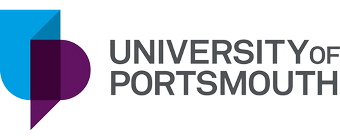This digital marketing Master's degree seeks to develop marketing knowledge, social media abilities, and the ability to analyze industry data. It is available to anyone interested in digital marketing who meets the entry requirements. The topics covered include big data, customer experience, social media marketing, brand identity, reputation, and marketing ethics. Case studies, simulations, and business projects allow students to apply their knowledge in real-world settings. They collaborate with real clients and other students on a Collaborative Marketing Project, honing technical and practical skills for industry problems. The course fosters curiosity about the world, people's thoughts, feelings, and decision-making, and teaches students to think like potential clients and consumers.

University of Portsmouth
MA Digital Marketing
Entry Requirements
A second-class honours degree in a Business subject, or equivalent professional experience and/or qualifications.
- English language proficiency at a minimum of IELTS band 6.5 (or equivalent) with no component score below 6.0.
Career Prospects
Companies look for business-savvy students with strong digital abilities and marketing understanding. Graduates with this degree can work in e-commerce, marketing, advertising, and social media. Students will complete a Collaborative Marketing Project, which will involve working with businesses and university departments to better understand their conditions and make marketing recommendations. The Marketing Industry Advisory Board provides resources such as presentations, judging competitions, and course material design. Graduates have pursued careers in digital marketing, social media, e-commerce, and mobile advertising. Career outcomes are based on the most recent graduate outcome surveys, which reveal career outcomes 15 months after graduation. Students can also launch their own digital businesses with help from our Entrepreneurs in Residence. Attending employability events throughout the year provides guidance on job searching and career options.
Course Details
Master's degree students may face additional demands due to work or family responsibilities. The course structure allows full-time study over one year or part-time study over two years. Each 15-credit module includes approximately 150 hours of study time, with 25 scheduled classroom hours. Full-time students can expect two staff-guided teaching semesters followed by a student-led independent study period, with classes spread over three or four days for the first two semesters. Students should study for 30 to 40 hours per week, including independent study time, and 12 hours of contact time and classes each week. Part-time students should study for 15 to 20 hours per week, including independent study time. Master's study is deeper and more specialized than an undergraduate degree, focusing on something that matters to them and their career. Teaching methods include lectures, seminars, and collaborative sessions in the Technology Enhanced Active Learning (TEAL) room. Moodle, the virtual learning environment, provides access to all teaching resources. Assessment is through coursework, presentations, assignments, and projects. Students will work on a Collaborative Marketing project with other students during the second semester and a major independent project with support from their supervisor. The project will be submitted at the end of the third semester, either September or May, depending on when they started the course.
Modules
Dissertation - 60 credits
Consumer Insight and Analytics - 15 credits
Environmental Social Governance and Marketing - 15 credits
Research Methods for Marketing - 15 credits
Social Media Marketing - 15 credits
Digital Marketing Strategy - 15 credits
The Marketing Agency - 30 credits
User Experience - 15 credits
Are you ready to start building your future?
Contact our admission counseller and get a free consultation.













